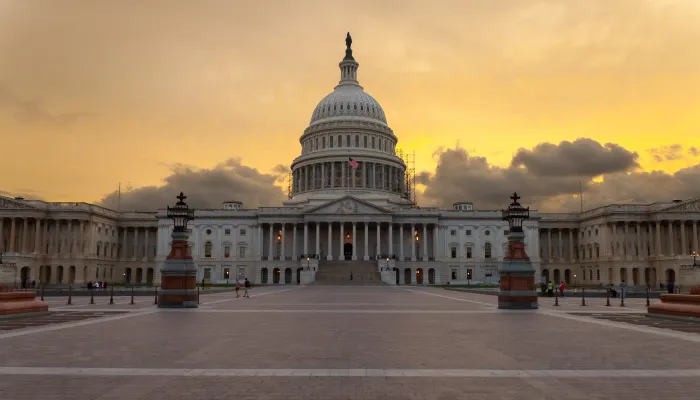Peuquet Highlights Importance of Budget Debates
As we face an end-of-the-year legislative crunch that promises to be fiscally irresponsible, former Research Director of the Committee for a Responsible Federal Budget Jason Peuquet advises us not to lose sight of the importance of the federal budget process. The budget debates are an annual opportunity to evaluate spending priorities across the full spectrum of federal programs. Discretionary spending programs are the primary focus of the federal budget, and reconciliation measures provide a chance to debate most entitlement spending programs (except for Social Security).
With discretionary spending declining and entitlement spending on the rise, Peuquet also discusses the need to invite stakeholders for all federal spending programs to offer their positions in order to ensure a robust and complete debate on spending priorities.
We sacrifice long-term U.S. interests when federal budget debates exclude advocates and stakeholders of policy areas commonly regarded as only tangential to federal budget discussions. Whether these other issues are affordable housing, mental health treatment, environmental protection, criminal justice reform, or the hundreds of other important policy debates in this country – these other issues should all be part of federal budget debates, regardless of one’s opinions on what the government’s role in particular parts of society should be. The onus of getting these additional stakeholders involved lies equally on those involved in the budget process as on the stakeholders of other policy debates. Only then will the country have a fighting chance to make better decisions about the budget – like directing public funds more towards R&D, innovation, and other investments in the future rather than consumption today.And that’s the problem. Other interests are not sufficiently represented in budget debates. As a share of the economy, public investments have been falling over time. Discretionary spending – the part of the budget that includes education, infrastructure, research, defense spending, and hundreds of other federal programs that lawmakers annual decide how much to spend on – has been falling over time, just as spending on other programs like Medicare, Medicaid, Social Security, and interest on the debt have been increasing. Certainly, this country’s safety net programs have provided incredible benefits to retirees, surviving family members, the disabled, and lower-income Americans – and a full discussion of the costs and benefits of entitlement reform is beyond the scope of this piece. But an increasing share of national resources flowing to programs that are essentially on automatic pilot threatens the resources we have to invest in other aspects of the country’s future. And while other policy debates and national priorities that are part of the U.S. discretionary budget are certainly not all investments of some sort or the other, many of them are.
Read Peuquet’s full post here.


